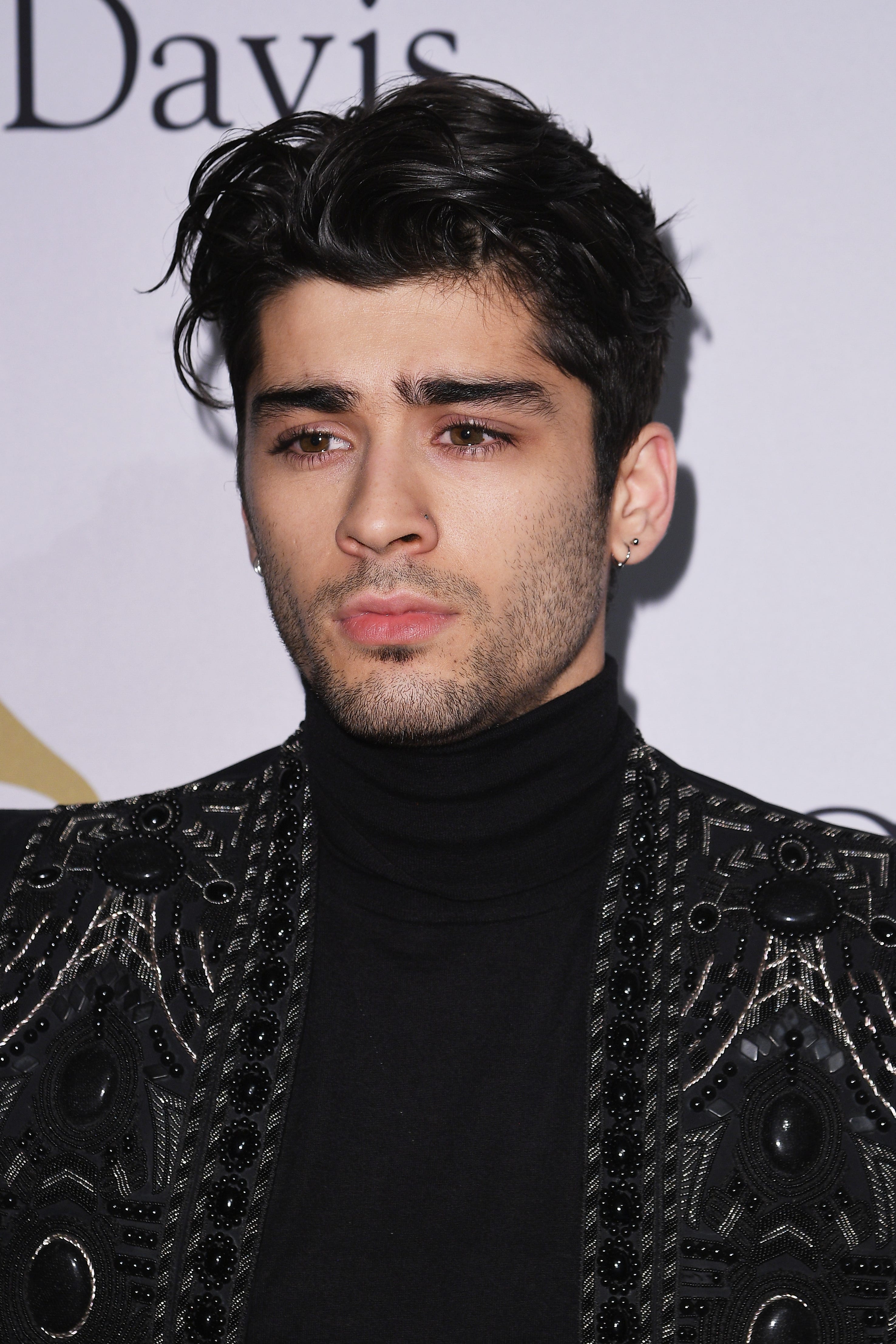Sexist Male Celebrities: Unpacking Their Impact On Public Discourse
It’s almost as if the actions and words of well-known figures often spark widespread conversations, particularly when those actions touch upon deeply rooted societal issues. When we talk about public figures, especially those in entertainment or media, their influence is quite vast, shaping perceptions and, in a way, reinforcing certain ideas, good or bad. Today, it feels important to look closely at the topic of sexist male celebrities and the ripples their behavior can send through our collective consciousness.
You know, sexism, as described in my text, is really a kind of unfair judgment or even discrimination that happens because of someone's sex or gender. It’s a belief system, too, that can cause a lot of harm, from hurtful actions to those quiet, subtle remarks that just keep old, unhelpful ideas alive. While anyone can experience it, this kind of bias often, very often, impacts women and girls in a significant way.
This kind of prejudice, so it seems, is deeply connected to traditional gender roles and the stereotypes we sometimes hold about how men and women "should" be. When individuals who are constantly in the public eye, like some male celebrities, exhibit behaviors that lean into these biases, it really does make us think. Their actions, in a way, can either challenge or sadly, reinforce, the very structures that maintain male dominance, or patriarchy, through what they say and how they act.
- Jessie James Decker Height Age Wiki Net
- Christina Milian Movies And Tv Shows
- Anna Maria Horsford Movies And Tv Shows
Table of Contents
- Understanding Sexism and Its Roots
- The Amplified Voice of Public Figures
- Societal Impact and Cultural Reinforcement
- Challenging Sexism in the Spotlight
- Frequently Asked Questions About Celebrity Sexism
Understanding Sexism and Its Roots
To truly grasp the discussion around sexist male celebrities, it helps to first get a clear picture of what sexism actually is. My text points out that it's a type of prejudice or discrimination based on someone's sex or gender. It’s not just about big, obvious acts; it can show up in many forms, from acts of violence to those quiet, almost unnoticed comments that, in a way, just keep old, unfair ideas going.
This bias, too, is very much tied to gender roles and the stereotypes that society often creates. These are those generalized beliefs about how men and women are supposed to act, what they should like, or what they are capable of doing. When these roles become rigid, they can limit people’s opportunities and choices, which is a bit of a problem.
Linda Napikoski, a journalist and activist who focuses on feminism and human rights, explains that sexism essentially means discrimination that comes from beliefs about a person’s sex or gender. This belief system can lead to various harmful behaviors. It's really about maintaining a system where male domination, or patriarchy, is kept in place through both ideas and actual practices. So, it's a pretty big deal, actually.
The Amplified Voice of Public Figures
When someone is a well-known celebrity, their words and actions carry a lot more weight, you know? They are constantly in the public eye, and what they say or do gets noticed by millions. This means that when a male celebrity acts in a way that is sexist, the impact is, like, really magnified. It’s not just a private comment; it becomes a public spectacle, often discussed on social media and in news outlets, affecting a very wide audience.
Think about it: a regular person might make a biased comment, and it affects those immediately around them. But when a famous actor, musician, or sports star does it, that comment or behavior can reach people all over the world, influencing young fans, shaping public opinion, and even normalizing certain attitudes. This makes their responsibility, in a way, quite substantial.
The very nature of their fame means they are, in some respects, role models, whether they want to be or not. So, when they display prejudice or discrimination based on gender, it can, you know, subtly teach or reinforce similar behaviors in others. It's a bit like a ripple effect, spreading out from the original source.
Subtle Comments and Everyday Interactions
Sometimes, sexism from male celebrities isn't always about grand, overt statements. Often, it shows up in much more subtle ways, in everyday interactions that, in a way, can be just as damaging. These might be offhand remarks during interviews, comments about a female colleague’s appearance rather than her achievements, or even dismissive tones when women speak.
These subtle comments, like, really add up. They might seem harmless on their own, but they contribute to a broader atmosphere where certain attitudes about gender are, you know, just accepted. For example, a male celebrity might make a joke about women belonging in the kitchen, or suggest that a female artist’s success is due to her looks rather than her talent. These are, in a way, those quiet comments that reinforce old, limiting stereotypes.
Such behaviors, even if they are not meant to be malicious, can, in some respects, foster an environment where women feel undervalued or objectified. It’s a bit like a constant drip of bias that wears down confidence and perpetuates harmful gender roles, just as my text explains. It's important to recognize that these small actions have a collective weight.
Overt Actions and Public Statements
On the other hand, there are times when sexism from male celebrities is very, very clear and undeniable. These are the overt actions and public statements that leave little room for misinterpretation. We’ve seen instances where celebrities have made openly derogatory remarks about women, engaged in inappropriate behavior towards female colleagues, or expressed views that are explicitly discriminatory based on gender.
These kinds of public displays, you know, often spark immediate outrage and widespread condemnation. They can include things like making unwanted advances, using demeaning language in public forums, or even advocating for policies that restrict women’s rights. Such actions, in a way, are a direct manifestation of the prejudice my text talks about.
When these overt acts occur, they don't just affect the individuals involved; they become a very public example of sexism in action. They can, in some respects, create a sense of discomfort or anger among audiences, but also, sadly, they might embolden others who hold similar views. It’s a powerful demonstration of how public figures can, for better or worse, shape the conversation around gender roles and equality.
Societal Impact and Cultural Reinforcement
The actions of sexist male celebrities don't just stay within the entertainment industry; they really do have a much broader societal impact. When public figures, who are often seen as trendsetters or opinion leaders, display sexist behaviors, it can, in a way, normalize those attitudes for a wider audience. This is especially true for younger, more impressionable fans who might look up to these stars.
My text mentions that sexism functions to maintain patriarchy, which is male domination, through both ideological and material practices. When a celebrity makes a sexist joke, for instance, it's not just a joke; it’s a subtle reinforcement of an idea that women are somehow lesser or deserve certain treatment. This can, you know, slowly chip away at efforts towards gender equality and make it harder for women to achieve fairness in various aspects of life.
Furthermore, these incidents often spark public debate, which, in some respects, can be a good thing. It forces society to confront these issues head-on and discuss what is acceptable behavior and what is not. However, it also means that harmful stereotypes and prejudices are, in a way, brought into the mainstream conversation, requiring constant pushback and education to counteract their influence. It’s a bit of a continuous struggle, actually, to shift deeply ingrained cultural norms.
The media's portrayal of these events also plays a big role. How news outlets report on celebrity sexism, or how social media platforms allow discussions to unfold, can either challenge or inadvertently support the problematic behavior. It’s a complex interplay, really, between the celebrity’s actions, public reaction, and media representation, all of which contribute to the broader cultural landscape around gender.
Challenging Sexism in the Spotlight
Addressing sexism, especially when it comes from public figures, is a pretty important task for all of us. It means, you know, not just letting things slide. When a male celebrity acts in a sexist way, it’s vital that people speak up and challenge that behavior. This can happen through various channels, from social media to formal complaints, or even just by having conversations within our own circles about why such actions are problematic.
One way to push back is by supporting organizations that work to combat gender discrimination and promote equality. These groups often provide resources, education, and advocacy that help dismantle the systems that allow sexism to persist. You might, for example, consider learning more about efforts to promote gender equality from reputable sources, like the UN Women organization, which works globally to achieve gender equality and the empowerment of women and girls.
It’s also about changing the conversation, isn't it? Instead of just reacting to negative incidents, we can, in some respects, actively promote positive examples of male celebrities who champion gender equality. Highlighting those who use their platform to advocate for fairness and respect can, you know, show what truly positive leadership looks like. This helps to shift the focus from what's wrong to what's right and what we aspire to be.
Ultimately, holding sexist male celebrities accountable means fostering a culture where such behavior is not tolerated or excused. It involves educating ourselves and others about the subtle and overt forms of sexism, and understanding how they impact individuals and society. By doing this, we can, in a way, contribute to a more equitable and respectful environment for everyone, which is really what it’s all about.
Frequently Asked Questions About Celebrity Sexism
What exactly is sexism?
Sexism is, you know, a type of prejudice or discrimination that happens because of a person’s sex or gender. My text tells us it can lead to many harmful behaviors, from acts of violence to subtle comments that reinforce old, unhelpful ideas. It’s often linked to traditional gender roles and stereotypes, affecting women and girls in a primary way.
How do celebrities contribute to sexism?
Celebrities, because of their very public platforms, can, in some respects, amplify sexist attitudes. When they make biased comments or act in discriminatory ways, their actions are seen by millions, potentially normalizing such behavior for a wide audience. This can, you know, subtly reinforce harmful gender roles and stereotypes, making it harder to achieve true equality.
What are the consequences of celebrity sexism?
The consequences of celebrity sexism can be quite far-reaching. It can, in a way, perpetuate harmful stereotypes, undermine efforts for gender equality, and create an environment where women feel undervalued. For the celebrities themselves, it often leads to public backlash, damage to their reputation, and sometimes, very real professional repercussions, which is, you know, a consequence of their public actions.

The best male celebrity hairstyles of 2017

Celebrities Who Have Shut Down Down Sexist Remarks

Celebrities Who Have Shut Down Down Sexist Remarks | Us Weekly